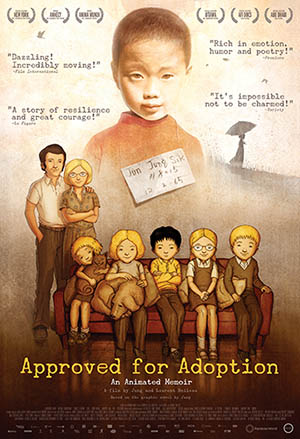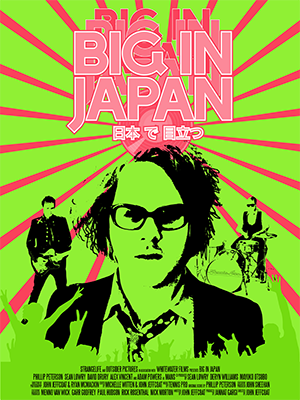DOCUMENTARY FILM AS PROCESS: IN HONOR OF JAMES BLUE
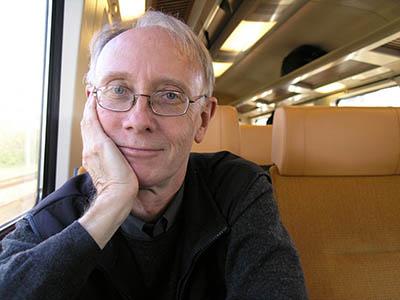 A talk by David MacDougall
A talk by David MacDougall
9:00 a.m. George S. Turnbull Center, 70 NW Couch St., Portland Free
In this talk, MacDougall will focus on the distinction between filmmaking conceived as a form of publication and filmmaking as an exploratory process. Referring to his experiences of filming at an elite boarding school in India, he will discuss some of the shifts that can occur in both the form and underlying meanings of such projects. Although recent debates among anthropologists and theoreticians have praised drawing over filming, more crucial differences are to be found in the engaged practice of the filmmaker and the contrasting, expressive potential of words and images.
Cosponsored with the UO School of Journalism and Communication’s “What is Documentary?” Conference.
MUSICAL COMPOSITION AND EXPERIMENTAL DIGITAL CINEMA
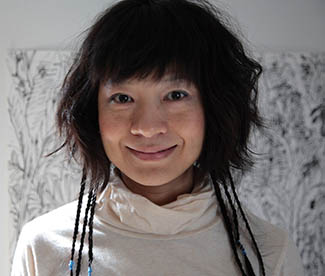 A talk by Wen-shing Ho
A talk by Wen-shing Ho
1:30 p.m. Jordan Schnitzer Museum of Art Lecture Room Free
Wen-shing Ho will discuss how her work aims to expand existing cinematic expression by applying musical notation, tonal systems, and the forms and structures of musical composition techniques to the conception and direction of digital cinema. She will specically address how her application of Maurice Ravel and Tori Takemitsu’s composition has pushed the boundaries of conventional cinematic storytelling, rhythm and mise-en-scene. Examples are offered from her experimental films Water, Thief, and Takao Dancer.
Cosponsored with UO Confucius Institute and EALL.
ON MY CAREER AS A COMICS ARTIST
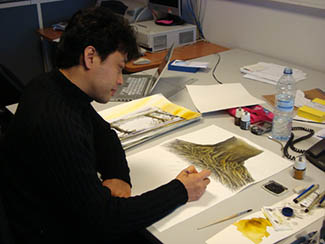 A talk by Jung Henin
A talk by Jung Henin
2:30 p.m. Proctor 41, Knight Library Free
Graphic novelist Jung, who will be presenting his debut animated feature Approved for Adoption at Cinema Pacific, will speak in this special session on his acclaimed work in comics. Jung is quite famous in Europe for his series Yasuda, La Jeune Fille et le Vent, and Kwaidan. He will discuss why he originally became a graphic novelist, how his career has developed, and what he has learned from the experience of adapting his novel to film. Jung will show original artworks on paper and talk about all aspects of production, from the development of the concept, script, storyboard, drawings, and coloring, all the way through navigating relationships with publishers.
Cosponsored with the UO Comics and Cartoon Studies.
JAMES BLUE’S DOCUMENTARY LEGACY
with Christina Kovac, Daniel Miller, Gerald O’Grady, and Suzanne Clark
5:30 p.m.–7:00 p.m. George S. Turnbull Center, 70 NW Couch St., Portland Free
This panel will celebrate the extraordinary archive of James Blue’s work that is now joining the permanent collections at the University of Oregon Libraries. Daniel Miller will comment upon James Blue’s powerfully cinematic approach to documentary in his exemplary film, The March, illustrated with some clips from his current film about the “Anniversary of The March” and the arrival of the Blue Archives in Oregon. Christina Kovac will discuss the restoration of Blue’s The March for the National Archives and Gerald O’Grady, who collected and maintained the collection through the years, will speak about the archive’s invaluable recordings of Blue’s interviews with documentary legends.
FRINGE FESTIVAL
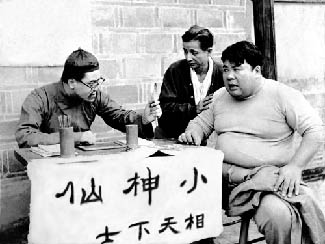 6:00 p.m.–8:00 p.m. Jordan Schnitzer Museum of Art Free
6:00 p.m.–8:00 p.m. Jordan Schnitzer Museum of Art Free
See video remixes and play an interactive Kinect game created by local media artists riffing on the Taiwanese classic film, Brother Wang and Brother Liu Tour Taiwan. Taiwanese music and dance will also be performed in the JSMA Café, side-by-side with the museum’s public opening reception for its spring exhibitions. Also on view: special preview of the upcoming Godzilla Smash 3 mobile game. Representatives of Eugene-based Pipeworks and Oregon Story Board will allow players to sample the game, and they will give a special 30-minute presentation on the game’s development at 7:30 p.m. Cosponsored with Oregon Film, Oregon Story Board and the Taiwanese Association of Eugene.
APPROVED FOR ADOPTION
Screening and discussion with codirector Jung
6:45 p.m. Bijou Art Cinemas
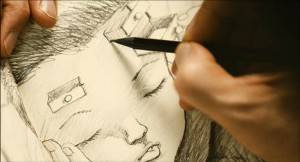
The Korean War left thousands of young refugees scattered across Europe and the United States. In this vibrant, animated documentary, Jung Henin, the film’s co-director and subject, retells his experience as a South Korean adoptee growing up in Belgium. The film spans the period from an animated 1970s Belgium to present day Korea, where a live-action Henin reconciles with his past.
Now an accomplished artist, Jung was far from disciplined growing up. What New York Times critic Nicolas Rapold describes as a “rambunctious childhood” at times borders on horrifying. Jung’s retelling of the precipitous follies of his youth is undoubtedly an act of catharsis. His was no ordinary adolescent identity crisis. There are palpable undertones of neglect and a young Jung seems distantly aware that he may have been adopted more as chic commodity than actual child. Jung’s adoptive parents often seem more concerned with their own reputation than his well being. The film moves through a variety of tones, as the darkness of his youth is often trumped by a lighter, adult sensibility. Jung acknowledges the shortcomings and, perhaps, misguided intentions of his adoptive family, but does so with midlife serenity. This is not a story of a boy lost to circumstance, but of a man who managed to elude his demons through artistry and creative expression. That expression culminates, fittingly, in a film that leaves viewers with a bit of Jung’s hard fought serenity.
Approved for Adoption offers a level, almost meditative perspective on an embittered childhood that will resonate with many viewers, particularly those who have raised or been adoptees. Cosponsored with Holt International, UO Comics and Cartoon Studies, and Unifrance.
TRIBUTE TO JAMES BLUE: THE MARCH AND A FEW NOTES ON OUR FOOD PROBLEM
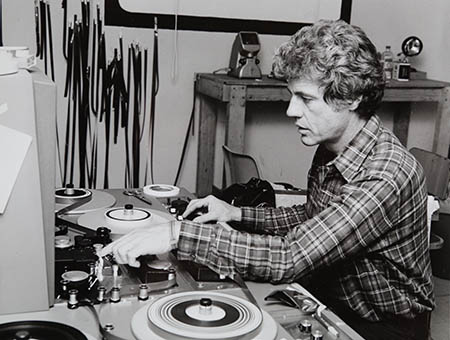 With special guests Richard Blue, Gerald O’Grady, Christina Kovac, and Gill Dennis
With special guests Richard Blue, Gerald O’Grady, Christina Kovac, and Gill Dennis
8:00 p.m. Whitsell Auditorium, Portland Art Museum
![]()
Fifty years ago, Portland-raised director James Blue led a team of fourteen sound and cameramen in documenting the landmark civil rights event, the March on Washington for Jobs and Freedom, where Martin Luther King delivered his legendary “I Have a Dream” speech. Blue wrote and narrated the script and edited the footage, producing, in the words of preservation specialist Christina Kovac of the National Archives, “a visually stunning, moving, and arresting documentary of the hope, determination, and camaraderie embodied by the demonstration.” The March won acclaim at many international film festivals, including Bilbao and Venice, and was named to the National Film Registry of the Library of Congress in 2008.
Blue served as director, scriptwriter, narrator, and editor of A Few Notes on Our Food Problem, a visionary essay film that looks at the green revolution and the development of agricultural production on three continents. The documentary was shot in Taiwan, India, Uganda, and Brazil, and was nominated for an Academy Award in 1968.
Following the two half-hour films, Blue’s colleague, Gerald O’Grady, who recruited Blue to Houston to run the Rice Media Center and then to Buffalo to join his Department of Media Study, will moderate a discussion. Joining O’Grady will be James Blue’s brother, Richard Blue, his co-screenwriter on A Few Notes, Gill Dennis, and the restorer of his films made for the U.S. Government, Christina Kovac.
Cosponsored with the UO School of Journalism and Communication’s “What is Documentary?” Conference and the Northwest Film Center.
BIG IN JAPAN
With director John Jeffcoat and Tennis Pro (performing live!)
9:15 p.m. Bijou Art Cinemas
![]()
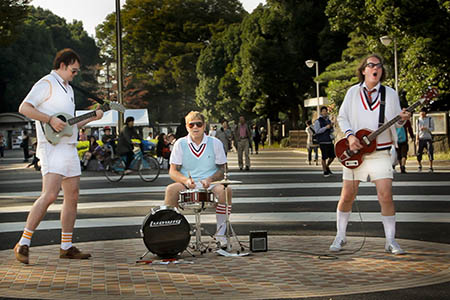 John Jeffcoat, the director of acclaimed indie feature Outsourced, has collaborated with Seattle band Tennis Pro for this unconventional hybrid of scripted and documentary material. It premiered to great acclaim at the South by Southwest festival in March.
John Jeffcoat, the director of acclaimed indie feature Outsourced, has collaborated with Seattle band Tennis Pro for this unconventional hybrid of scripted and documentary material. It premiered to great acclaim at the South by Southwest festival in March.
Desperation forces unconventional surf rock band Tennis Pro on a wild journey from Seattle, Washington to Tokyo, Japan for what they believe is one last shot at international fame. After seven years as a band, with day jobs and young families at home, they still cling to the belief that they were destined to deliver their music to the nation they believe will celebrate it. Armed with a potential hit single, “Rock over Tokyo,” and a scrappy pioneering spirit, the three band members hit the streets trying to make the magic happen, in spite of cultural barriers, distractions and missteps. They are forced to lean on their individual talents—Sean as a hairstylist, Phil as a cellist, and David as a card shark—to make ends meet. In spite of themselves, their dream is infectious, and soon they have everybody believing they just might make it Big In Japan.
